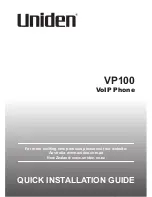
CHAPTER 18: Taking Photos and Videos
384
Sharing Videos
Once you create video, you can share that video using the
Share
button. Just as with
still pictures, you can tap the screen right after the video is shot, or you can go to the
Camera roll,
tap the video, and then press the
Menu
button.
When you create videos, the primary way to upload and share them is through YouTube.
This works really well for personal videos, but it’s a bit trickier for corporate videos,
because each YouTube “channel” is limited to one user account and one password.
Eventually, there may be an easy way to upload to a collaborative channel. Google is
currently experimenting with methods to allow users to upload submissions to another
channel.
YouTube offers unlimited storage for videos and two basic privacy settings, private and
public. Private videos can be shared with small groups of other users. You can also
upload videos privately at first and make them public later. Public videos are searchable
and are automatically closed-captioned using speech-to-text technology.
Videos on YouTube are limited to 15 minutes unless you are part of YouTube’s Partner
Program for commercial content creators. More information on YouTube’s Partner
Program is available at
www.youtube.com/t/partnerships_faq
In order to upload videos to YouTube, you must have a YouTube account, and it must
be linked to a Google account. However, large files require a Wi-Fi connection.
NOTE
: When you give public photos and videos tags and descriptions, keep search in mind. Use
terms that you think people searching for that video would use, and do not skip fields.
The
Share
button will also work for sending your video as an email attachment or text
message. However, you can’t make a video smaller from your phone, so if you’ve shot
the video in VGA or higher resolution, you’ll need to upload it to YouTube or transfer it to
your computer before trying to send it anywhere else.
Even though Photobucket supports video, you can’t upload videos directly to your
Photobucket account as of the time of publication.
The Gallery
Photos taken from your camera are stored on your phone’s memory card, and you can
review these using your
Camera
app. However, you might also have photos you’ve
moved or downloaded from other sources. You can use the
Gallery
app to return to
your
Camera roll
and browse through your pictures.
Tap an album to view the pictures within it. You can enlarge photos using the pinch-to-
zoom motion. You can view pictures either as a Camera roll or as a grid of preview icons
depending on how you hold your phone. Tilt your phone horizontally to view Camera
rolls and vertically to view an image grid. Tap an individual picture to view it.
Summary of Contents for DROID 2 Global
Page 1: ...DROIDS Made Simple MartinTrautschold Gary Mazo Marziah Karch DROIDS ...
Page 3: ......
Page 25: ... ACKNOWLEDGMENTS xxii ...
Page 27: ......
Page 55: ......
Page 61: ...INTRODUCTION 36 ...
Page 63: ......
Page 121: ...CHAPTER 2 Typing Voice Copy and Search 96 ...
Page 151: ...CHAPTER 4 Other Sync Methods 126 ...
Page 213: ...CHAPTER 7 Making Phone Calls 188 ...
Page 245: ...CHAPTER 9 Email on Your DROID 220 ...
Page 349: ...CHAPTER 15 Viewing Videos TV Shows and More 324 ...
Page 367: ...CHAPTER 16 New Media Reading Newspapers Magazines and E books 342 ...
Page 415: ...CHAPTER 18 Taking Photos and Videos 390 ...
Page 493: ...CHAPTER 21 Working With Notes and Documents 468 ...
Page 529: ...CHAPTER 24 Troubleshooting 504 ...
Page 531: ......
Page 549: ...CHAPTER 25 DROID Media Sync 524 ...
Page 581: ...APPENDIX DRIOD App Guide 556 ...
Page 611: ......
Page 612: ......
Page 613: ...Index ...
Page 614: ......
Page 615: ...Index ...
Page 616: ......
Page 617: ...Index ...
















































